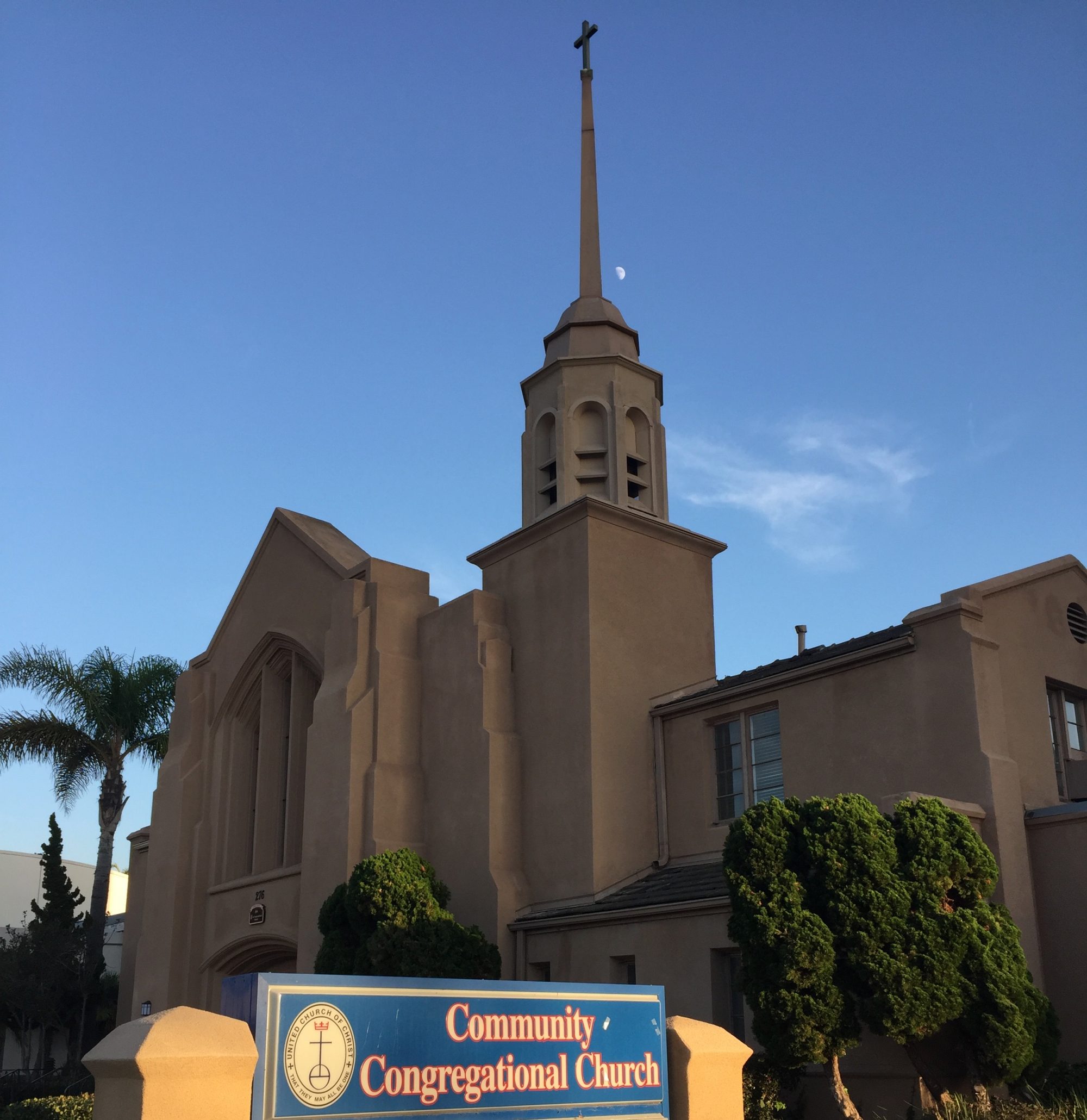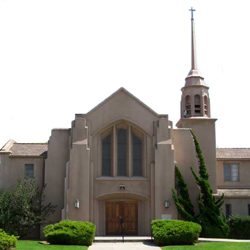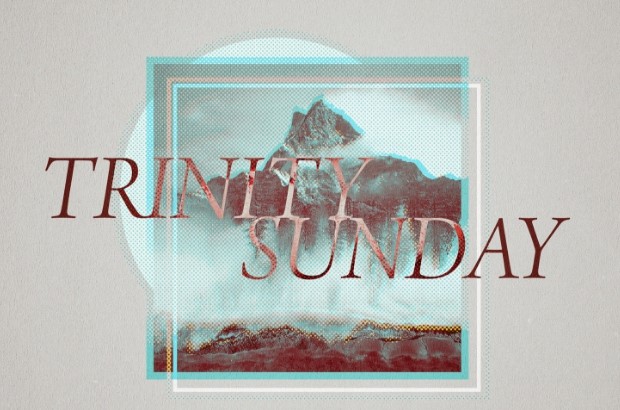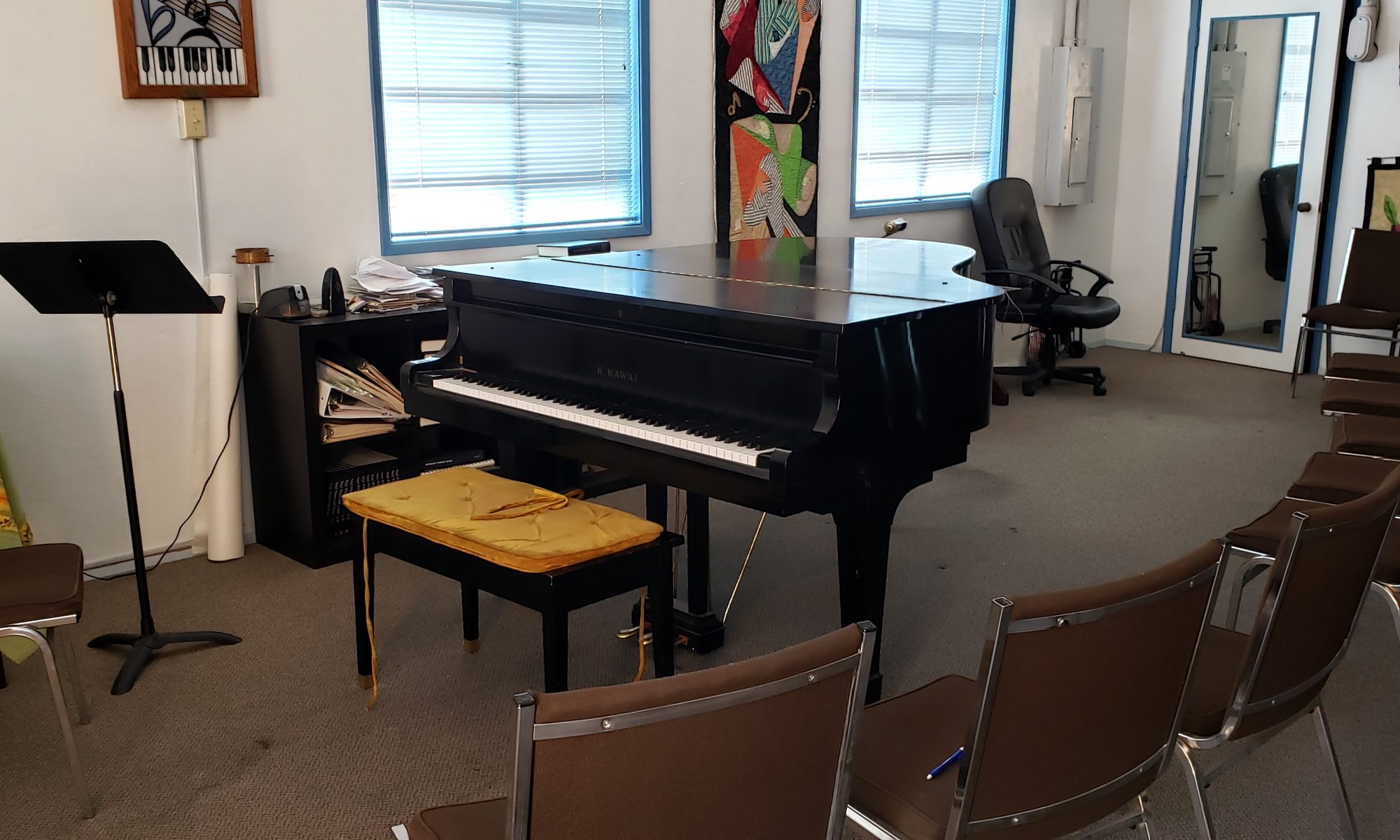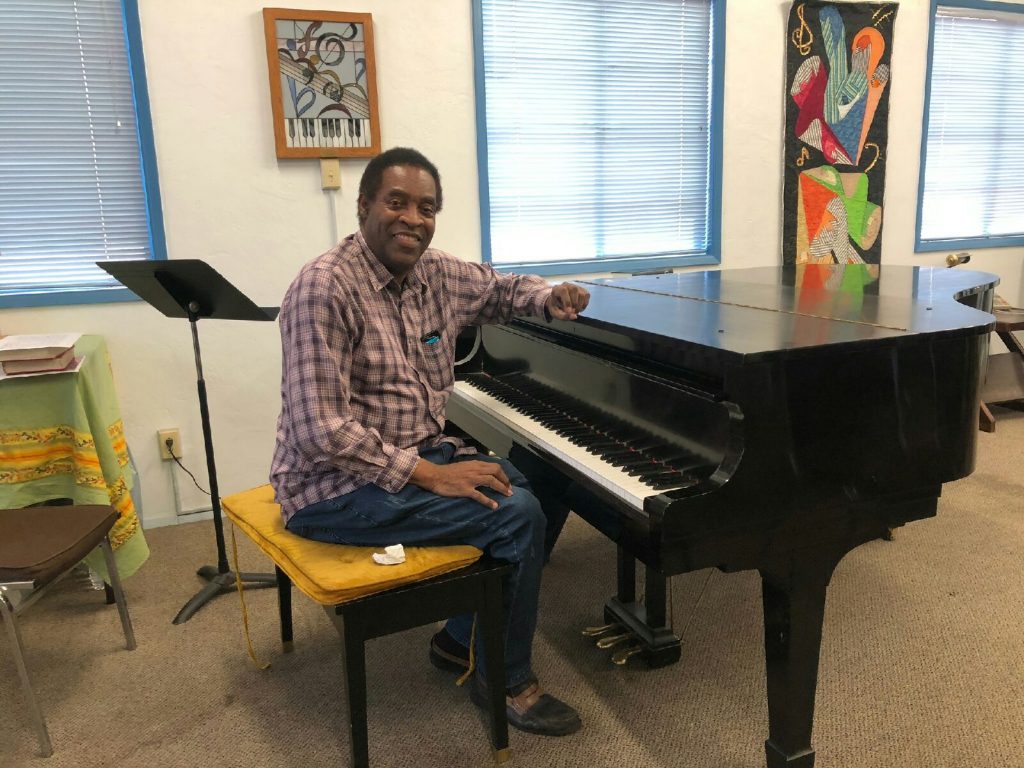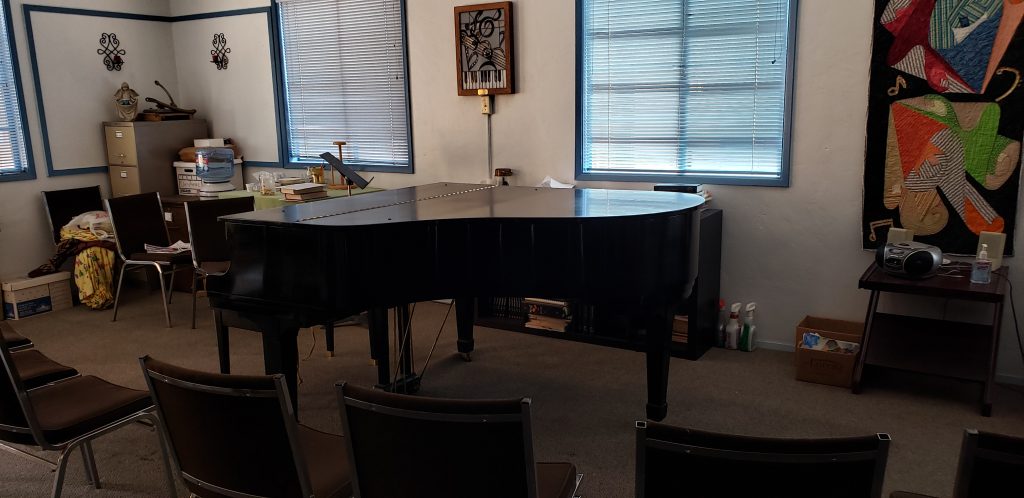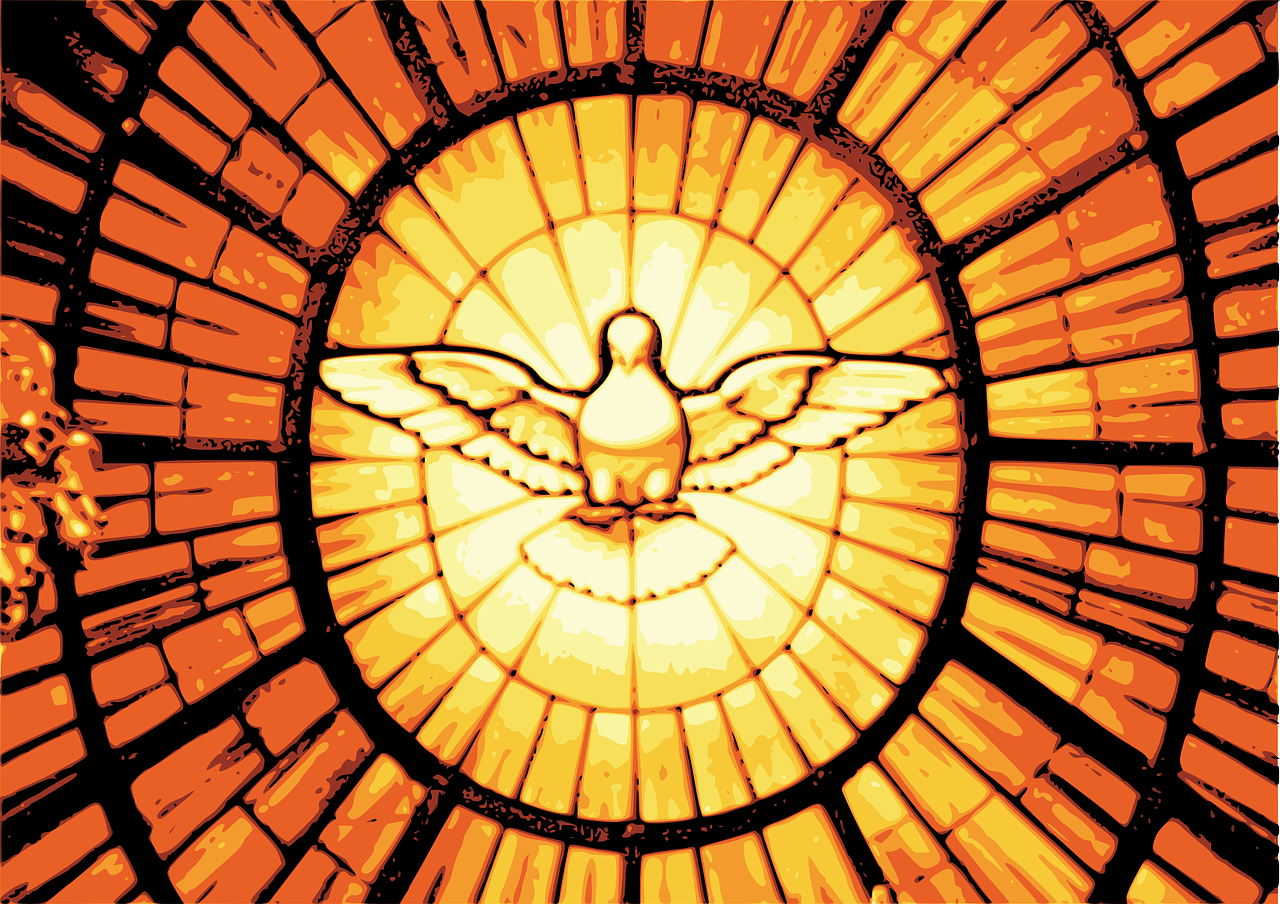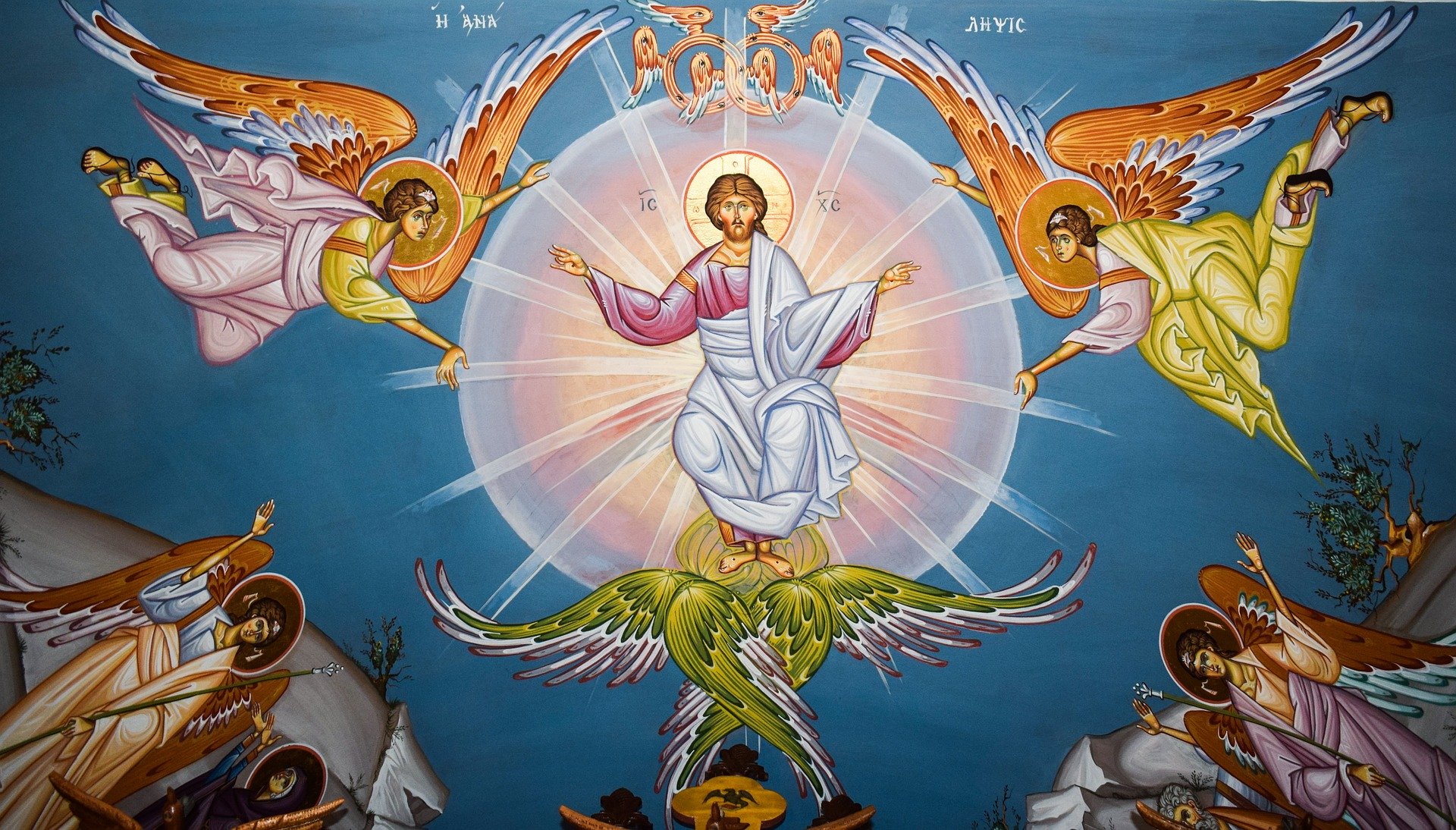Dear CCCV Friends in Christ,
Grace and peace to you on this day. This Sunday is known as Trinity Sunday when the Church celebrates the oneness of God and God’s invitation to be in community with God. Also tomorrow, we will be blessed with special music by Ester Banayo. It is also Communion Sunday and so I ask that you please have communion elements ready for tomorrow’s worship service; (bread and juice of any kind.)
~~
Order of Worship for June 7, 2020
On-line Worship Service
Community Congregational Church
United Church of Christ
P.O. Box 5574 Chula Vista, CA 91912
Welcome
Call to Worship- Psalm 66
Opening Prayer of Invocation: (In Unison)
Holy Trinity, three in One. We bless you and sanctify your name. On this Trinity Sunday when we celebrate the wholeness of your being, of your love, and of your presence, we give you thanks. Thank you for allowing us to worship you, even from a distance and yet together. Thank you for giving us a new day to sing your praises in song, word, and deed. Thank you for calling us to this time and place of quiet reflection, of surrender to You of all that impedes us from fully loving, fully trusting, and fully following you. Be with us, speak to us, and fill us. This we pray in the name of God the Creator, Jesus our Savior and the Holy Spirit, our sustainer. Amen.
Hymn of Praise “Holy, Holy, Holy” (NCH #277); verses 1, 2, and 4
Pastoral Prayer
Scripture Reading Matthew 28: 16-20
Special Music by Ester Banayo: “I Walk Today Where Jesus Walked”
Communion Meditation “The Trinity: We Are Invited”
Holy Communion
As grain that was scattered on the hillside
was gathered together and made into one loaf,
so too, we, scattered at tables in our own homes,
are bound together around Christ’s table
and become one.
As grapes grown in the field
are gathered together and pressed into wine,
so too are we drawn together
and pressed by our times
to share a common lot
and are transformed into Christ’s self-giving love for all.
God be with you.
People: And with your spirit.
Pastor: Lift up your hearts
People: We lift them up to God.
Pastor: Give thanks to God, Blessed Trinity
People: It is right to give God thanks and praise.
Pastor: Praise to you Divine Creator. Thank you for the gift of life,
the beauty of nature,
and your steadfast loving kindness.
Praise to you Divine Redeemer.
Thank you for sharing our human existence,
from birth through death to everlasting life
you have shown us a way worth emulating,
bringing healing and hope to those most in need.
Praise to you Divine Sustainer.
Thank you for the vision to see beyond the immediate,
a calm in the midst of storm,
the strength to build an ever – expanding community
and the courage to bring about any change necessary within our lives.
Prayer of Confession
Assurance of Pardon
The Words of Institution/Remembrance
Prayer of Consecration (In Unison)
Holy God, descend your Spirit upon these gifts of grain and grape
that they might be for us the presence of the living Christ
and pour out your Spirit upon us
so that we might taken, blessed, broken and distributed
so that others might know the blessings
of living in communion with you and one another.
Through Christ, with Christ and in Christ, in the unity of the Holy Spirit,
all glory and honor are yours Almighty God, now and forever. Amen.
The Prayer of Our Savior (Our Father who art in heaven…)
The Distribution
Prayer of Thanksgiving (In Unison)
For the beauty of creation,
the gift of life and your presence with each of us,
even though we are physically distanced,
we give you thanks.
Work through us
so that we might be channels of your mission in the world,
to build your community on earth as it is in heaven. Amen.
Closing Hymn “At The Cross” (Red, #95); verses 1, 2, and 4
Alas and did my Savior bleed? And did my Sovereign die?
Would He devote that sacred head for someone such as I?
Chorus:
At the cross, at the cross where I first saw the light, And the burden of my heart rolled away. It was there by faith I received my sight, And now I am happy all the day!
Was it for crimes that I have done, He suffered on the tree?
Amazing pity grace unknown and love beyond degree!
But drops of grief can ne’er repay the dept of love I owe:
Here, Lord, I give myself away, tis all that I can do!
Announcements
Benediction: The grace of the Lord Jesus Christ, the love of God, and the communion of the Holy Spirit will go with you and before you, today and ever more. Amen
+++++
Note: Much of today’s liturgy is taken/ adapted from UCC Worship Ways. On-line worship material. Copyright 2020 Justice and Local Church Ministries, Faith INFO Ministry Team, United Church of Christ, 700 Prospect Avenue, Cleveland, OH 44115-1100. Permission granted to reproduce or adapt this material for use in services of worship or church education. All publishing rights reserved. Some of today’s worship service was written by Pastor Liz Aguilar.
